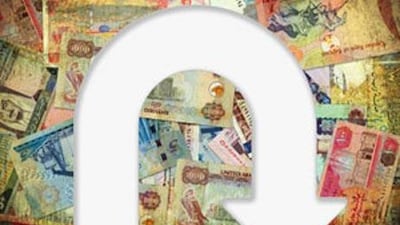Levels of debt in the MENA region were not high before the financial crisis, apart from a couple of notable exceptions. But most debt was poorly structured and tripped up a number of organisations in the region including government-related companies, banks, corporates and individuals.
In my opinion, the MENA region as a whole was much too reliant on the loan capital markets, including bank bilaterals and bank syndications. The proportion of deals being financed through the loan capital market as opposed to bond or equity markets was way out of proportion compared with global norms. The problems with loan capital markets are well-documented: being covenant heavy; with syndicates as strong as the lowest common denominator; and offering only shorter-term finance. Many bank deals in the region were raised to make long-term, strategic investments and the only means of repayment was to refinance.
Today, I see an about turn in attitudes towards financing with the focus being on bond and equity markets. And this reflects market conditions. For example, while the bond and equity markets have responded well in recent weeks to Dubai's recapitalisation of Dubai World and Nakheel, loan capital markets have been much slower to respond. In an environment where the loan capital markets have sharply reduced their appetite for risk and contracted their balance sheets, we have seen Dubai's credit default swaps tightened by 40 per cent in recent weeks and equity markets strongly outperform the rest of the region.
Yet equity valuations are not very challenging. The EFG-Hermes Research team values the UAE markets today at less than eight times this year's earnings. Even if you excluded all property stocks and aggressively cut the listed banks' forecast earnings by 30 per cent, the market is still trading on just 11 times this year's earnings. At these valuation levels, and with equity risk premiums tightening, I think we will enjoy steady progress in equity market performance.
Organisations have quickly evolved their thinking and are looking for long-term money, financed through capital markets and preferably in their own domestic currency. Mobinil's 1.5 billion Egyptian pound (Dh975.3 million) bond that EFG-Hermes led in January is evidence of that. So is the convertible for Dh391.5 million (US$106.5m) for National Marine Dredging, and the sub-investment grade bond for Dar Al Arkan Real Estate for $750m.
EFG-Hermes leveraged its retail and institutional distribution capabilities and did not need to allocate any of the Mobinil offering to banks. But coupled with this about turn in structuring, management teams are being more strategic about how they raise and allocate capital in their businesses. It has always been true that companies should raise capital when they can, not when they have to. But this has never been more true than in the past two years. Consequently, many companies that have had heavy capital allocation to property are asking themselves "Why?"
Monetisation of these assets serves two purposes: it allows capital to be re-allocated to the core business; and it secures long-term finance. Saudi Arabia's Savola Group is the best example this year with two large sale-and-leaseback transactions. The same theme is gradually developing in personal finance across MENA as mortgage laws and products develop. And we are seeing capital markets assist in this process by packaging property in company or fund structures.
In addition, companies recognise the strategic value of listing their shares. In the future when making a decision on when to launch an initial public offering (IPO), owners and directors will be more focused on the value of the currency it brings and the valuation of the listed entity overall than they were historically. And the regulators are helping with that process by allowing a smaller percentage of a company to list at IPO. Expect IPO volumes in the fourth quarter of this year and through the next to increase.
Historically, investors in the MENA region have lacked diversification in their asset allocation. Typically retail, high net-worth individuals and family offices were heavily overweight both in property and their domestic equity market. By and large these are high beta and low-yielding assets. Diversification should benefit investors with higher yields and less risk. Watch out for two areas of diversification. First, fixed income products - domestic currency bonds, high yielding dividend stories and listed property trusts. Fixed income was one of EFG-Hermes's best performing asset classes last year, and for good reason. Despite having a higher median rating ("A" or "A1") MENA bonds trade at a discount of 270 basis points to the Emerging Market Corporate Bond Index (median rating "BBB" or "Baa1").
The MENA region even trades wider than central and eastern Europe despite having stronger budgets and more solid economies. Second, expect investors to change the focus of their portfolios from domestic markets to a MENA, regional view. By and large this transition will reduce risk and increase returns. You can use Sharpe Ratios to illustrate this, or you can look at previous examples where this took place.
I saw the introduction of the euro in 1999 transform institutions' investable universe from their own domestic markets and on to the entire European region. In the process there were significant re-allocations between countries and asset classes. In 1999 the story was all about German fund managers diversifying from banks and car makers. In many Gulf countries this year will be about diversification from banks and property developers.
Philip Southwell is the chief executive (lower GCC) of EFG-Hermes, a regional investment bank

